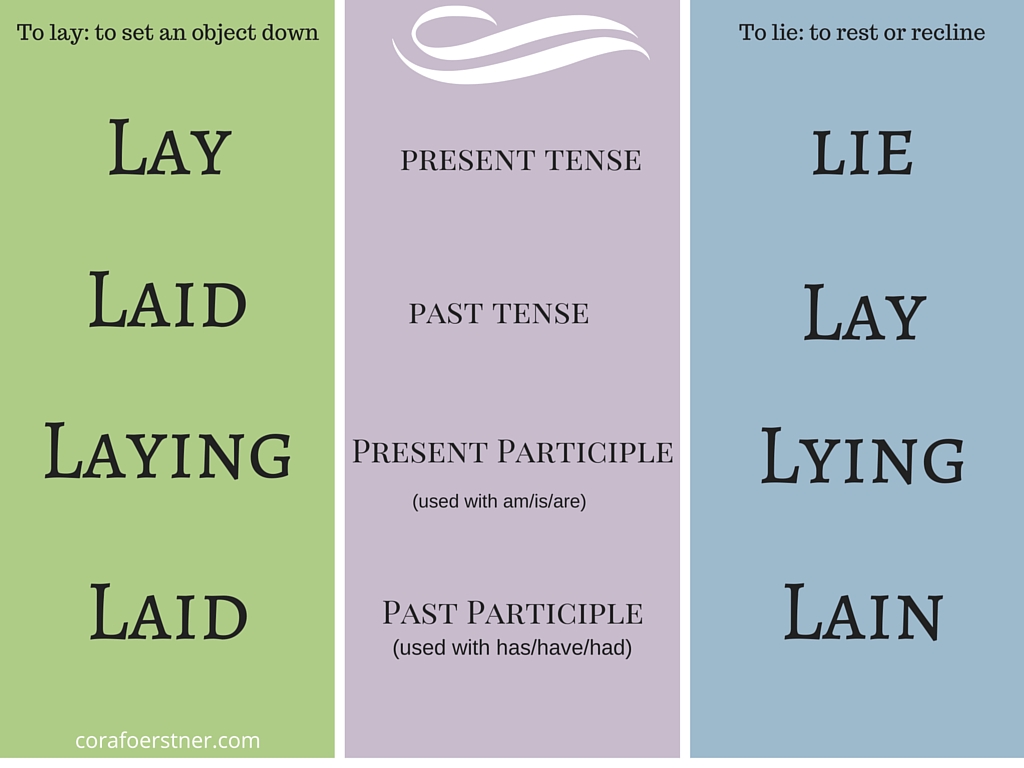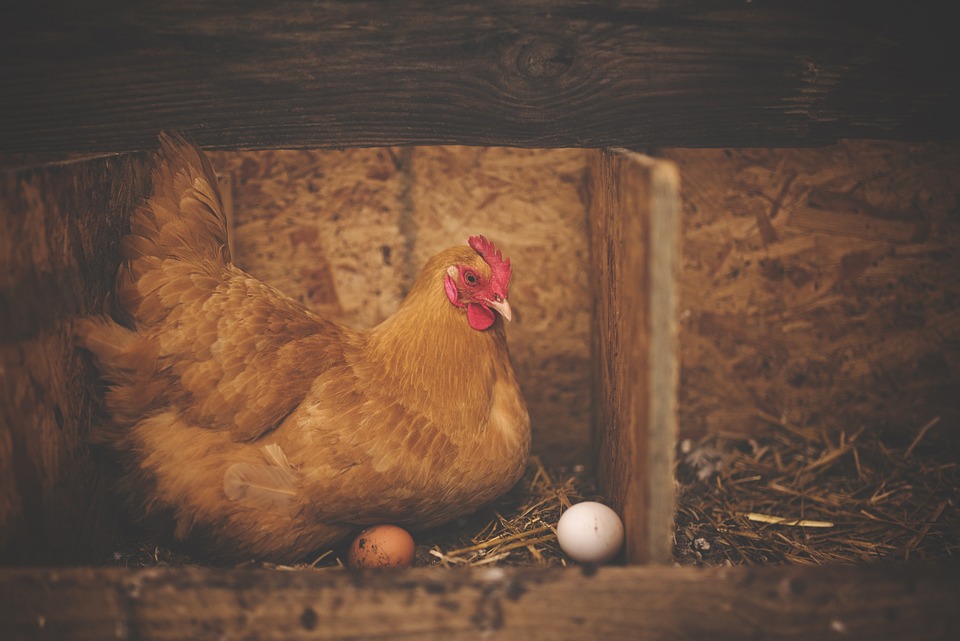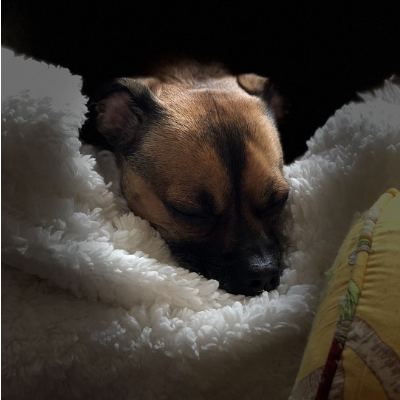I use a piece of software to produce images for this site, social media, my newsletter and other things. I love it, and smile at the short straplines it comes up with each time you download an image. That is, except for the strapline which talks about ‘laying’ on a couch. No no no! What is this person laying? An egg?
When even the professionals get it wrong, what are us mere mortals to do? In looking at this, I had a light bulb moment – it helps a lot to understand the difference in meaning between the words ‘lay’ and ‘lie’. Once we learn this, it’s a great guide to using the right version.
Here’s a diagram which will help (with thanks to whomever posted this on Twitter or Facebook).

The tops of the first and third columns indicate the separate meanings of the words ‘lay’ and ‘lie’. But while they are very different actions, unfortunately they are described by similar words.
If you, or any subject, are dealing with an object being put somewhere, you use the ‘lay’ column. If you, or any subject, are reclining/resting, you use the lie column.

Dealing with an object:
Let’s take the classic hen.
Present tense: The chicken lays its egg in the nest.
Past tense: The chicken laid its egg in the nest.
Present participle: The chicken is laying its egg in the nest.
Past participle: The chicken had/has laid its egg in the nest.
Needing to recline and rest
The dog has had a long walk and wants to rest.
Present tense: The dog lies on its blanket.
Past tense: The dog lay on its blanket. [NOT LAID!]
Present participle: The dog is lying on its blanket.
Past participle: The dog had/has lain on its blanket.

Much of the confusion comes about because the word ‘lay’ is both the present tense of placing an object down AND the past tense of ‘lie’. Hence it is a common mistake for animals and people to be laying down when they should be lying down. Or they laid down when really they had lain down.
My suggestion? Do what I’ve done, print out the diagram and stick it by your computer, and hope never to be confused again. Or if the possibility of confusion still terrifies you, head to the thesaurus and find another word!
For more on this topic, and where I checked my examples try these short articles
Writers Digest
Britannica
For more writing tips, check out these posts on my blog. Use the search bar at the bottom to look for specific topics.
Liked this post? Feel free to share it!
The dreaded ‘lay’ vs ‘lie’ explained
Tweet